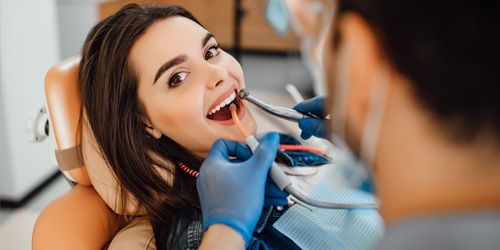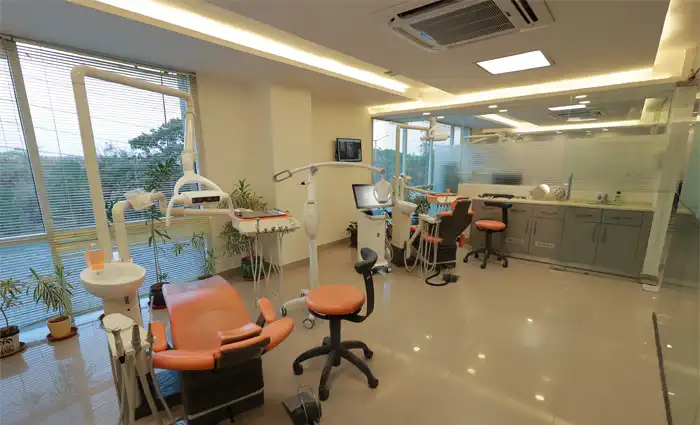Full arch implants involve the placement of multiple dental implants along the lower jaw to support a full set of prosthetic teeth. Unlike individual tooth implants, full arch implants typically use a fewer number of strategically placed implants to support an entire arch of teeth. The most common systems are “All-on-4” or “All-on-6,” referring to the number of implants used.
What is the Procedure for Lower Jaw Full Arch Implants?
Consultation and Assessment: A thorough examination, including digital imaging (X-rays, CT scans), is conducted to evaluate bone density and structure. A personalized treatment plan is developed, considering the patient’s specific needs and dental health.
Implant Placement Surgery: The surgery is usually performed under local anesthesia or sedation. Implants are strategically placed in the lower jawbone, often in areas with the highest bone density to ensure stability. In cases of significant bone loss, bone grafting may be required before implant placement.
Healing and Osseointegration: Following implant placement, a healing period of several months allows the implants to integrate with the jawbone (osseointegration), creating a stable foundation for the prosthetic teeth. Temporary prosthetic teeth may be placed during this period to maintain function and aesthetics.
Final Prosthetic Placement: Once osseointegration is complete, impressions of the mouth are taken to create the final prosthesis. The custom-made prosthetic arch is attached to the implants, restoring full function and a natural appearance.
Techniques for Lower Jaw Full Arch Implants
Several techniques are employed in the placement of full arch implants in the lower jaw, each with its own set of advantages and considerations:
1. All-on-4 Technique: This technique involves the placement of four implants in strategic locations within the mandible to support the entire arch of prosthetic teeth. For this technique, adequate bone density is essential; additional procedures such as bone grafting may be required for some patients.
2. Hybrid Prosthesis: Hybrid prostheses combine dental implants with a fixed acrylic or ceramic bridge, offering stability and aesthetics. They are durable, have natural appearance, and are easy to maintain. These prostheses require sufficient bone volume and density, and the patient needs to practice regular hygiene.
3. Implant-Supported Overdentures: Implant-supported overdentures utilize dental implants to anchor a removable denture securely in place. They have improved stability compared to traditional dentures, are easier maintenance, and cost-effective. Regular adjustments may be required as the jawbone remodels over time; proper oral hygiene is crucial.
What are the Benefits of Full Arch Implants?
Stability and Function: Full arch implants provide a stable and secure fit, eliminating the issues of slippage and discomfort associated with traditional dentures. They allow for normal chewing and speaking, greatly enhancing overall functionality.
Bone Preservation: Dental implants help preserve jawbone density by stimulating bone growth, preventing the bone resorption that occurs with tooth loss.
Aesthetic Improvement: The prosthetic teeth are designed to look and feel like natural teeth, enhancing the patient’s smile and facial structure. Customization ensures that the prosthesis matches the patient’s natural teeth in color and shape.
Success Rate: With proper care, full arch implants can last many years, offering a long-term solution compared to dentures that may need frequent adjustments or replacements.
Improved Quality of Life: Patients report increased confidence, better nutrition due to the ability to eat a wider variety of foods, and overall enhanced well-being.
Proper oral hygiene and regular dental check-ups are essential to maintain the health of the implants and surrounding tissues. While the implants themselves do not decay, the gums and bone around them can still be susceptible to conditions like peri-implantitis.
Not all patients are candidates for full arch implants. Adequate bone density and overall health are critical factors in determining eligibility. A comprehensive consultation with a dental specialist is necessary to evaluate individual cases and potential risks.





